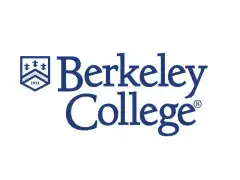MBA - Management (Accelerated One Year)
- 1 year
- Duration
- 14,100 USD
- Price
- Rolling admission
- Start
- Rolling admission
- Deadline
- MBA
- Degree
- Campus
- Format
- Multiple Locations / USA
- Location
Program description
Our M.B.A. instructors have all had illustrious careers in academia and business. They have each taken on a variety of executive roles and responsibilities throughout their careers to strengthen their corporate credentials. They have a wealth of professional expertise between them, and you will benefit much from their enlightening perspectives on current events.
The program stands out in many ways, including:
- Available concentrations in some of today’s most in-demand areas
- The ability to choose electives that correspond with your career goals and apply concepts from coursework to real-world situations in your current career
- Dedicated support services and resources
- Exceptional networking opportunities with classmates, professors, and other connections
The core principles of integrity, stewardship, sustainability, and inclusivity are the cornerstones of Berkeley's Master of Business Administration (M.B.A.) degree in Management program, which is designed to help outstanding individuals stand out in the workforce. The M.B.A. in Management program at Berkeley offers six unique concentrations that, upon successful completion of the program, are noted on the transcript.
The Berkeley College M.B.A. in Management program can be completed in the traditional two-year format or an accelerated one-year format.
The MBA in Management degree program is offered by Berkeley College New Jersey and Berkeley College New York.
Program structure
Year 1
Semester 1
- Essentials of Management
- Leadership & Corporate Governance
- Operations Management
- Managerial Economics
Semester 2
- Managerial Finance
- Marketing in a Global Context
- Strategic Management of Technology
- M.B.A. Elective
Semester 3
- M.B.A. Electives
- Capstone
MBA Electives
- Managing in the Government & Nonprofit Sector
- Project Management
- Entrepreneurship
- Negotiation & Conflict Management
- Customer Service Management
Concentration Electives
Accounting
- Accounting Theory
- Advanced Taxation
- Advanced Auditing
- Forensic Accounting and Fraud
Human Resources Management
- Compensation and Employee Benefits
- Employee Recruitment and Selection
- Contemporary Issues in HRM
- Strategic HRM
Healthcare Management
- Healthcare Systems and Environment
- Healthcare Economics
- Healthcare Informatics
- Practical Case Studies in Healthcare Management
Financial Management
- Financial Markets and Institutions
- Financial Statement Analysis
- Corporate Treasury and Risk Management
- Contemporary Issues in Financial Management
Supply Chain Management
- Global Supply Chain Management
- Supply Chain Logistics
- Supply Chain Risk Management
- Supply Chain Analytics and Analysis
Price
Tuition
- Year (two semesters) assuming 12 credits (12 credits per semester) $14,100
- Application Fee $50
- Tuition Deposit $300
- International Application Processing Fee $100
- Graduation fee $100
Requirements for applicants
- An application for admission;
- Official transcripts from all undergraduate institutions;
- 50 USD nonrefundable application fee;
- Two letters of recommendation;
- Resume;
- Personal statement;
- Application for transfer credit;
- TOEFL or IELTS scores for students graduating from an institution in a country where English is not the official language and English is not the student’s first language
About the university

Berkeley College offers a distinctive college experience. We want to make every effort to enable you to realize your greatest potential. At its campuses in New York and New Jersey, as well as Berkeley College Online, more than 4,000 students (including more than 380 foreign students from 50 different countries) pursue their education.
Berkeley College also places a high premium on making it simple to accommodate a high-quality education into a busy lifestyle. Berkeley College's academic programs are created and frequently updated with input from industry advisory boards to make sure that students are taught the skills that companies of today are looking for.





